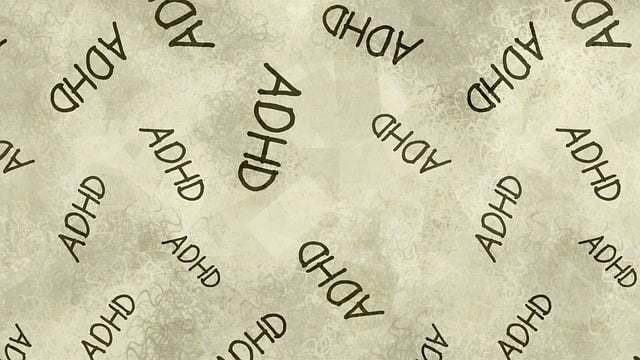Arvada's renowned Dissociative Disorder Therapy (DDT) navigates unique challenges treating conditions like Dissociative Identity Disorder (DID). Effective management involves a multi-faceted approach: specialized techniques, open communication, safe environments, and empowering clients with Mental Wellness Journaling. Case studies highlight successful strategies, including compassion cultivation, structured therapeutic techniques, and ongoing monitoring. These methods enhance risk mitigation, improving treatment safety and effectiveness for individuals with dissociative disorders in Arvada's specialized care setting.
In the complex field of mental health, risk assessment is paramount, especially for conditions like dissociative disorders. This article explores the nuanced risks within Arvada dissociative disorder therapy, offering a comprehensive guide for professionals. We delve into the understanding of these disorders and their unique impact on therapeutic settings. By identifying potential hazards, we provide strategies to mitigate risks effectively. Through case studies, we highlight successful risk management, guiding practitioners in delivering safer, more successful Arvada dissociative disorder therapy.
- Understanding Dissociative Disorders and Their Impact on Therapy
- Identifying Risks in Mental Health Practice for Dissociative Disorder Cases
- Strategies for Mitigating Risks in Arvada Dissociative Disorder Therapy
- Case Studies: Learning from Successful Risk Management in Dissociative Disorder Treatment
Understanding Dissociative Disorders and Their Impact on Therapy

Dissociative disorders are a complex group of mental health conditions that can significantly impact an individual’s ability to function and engage in therapy. These disorders, such as Dissociative Identity Disorder (DID), involve a disruption in one’s sense of identity, memory, and consciousness. For mental health professionals in Arvada or any setting, understanding the nature of dissociative symptoms is crucial when providing effective treatment.
When working with individuals experiencing dissociative disorders, therapists must be vigilant in assessing and addressing potential triggers that can lead to dissociation during therapy sessions. Emotional Regulation techniques are often integral to these treatments, helping clients manage intense emotions and prevent escape mechanisms. Additionally, Social Skills Training and Mental Wellness Coaching Programs can aid in rebuilding connections and fostering a sense of stability, which is essential for those navigating the challenges posed by dissociative disorders.
Identifying Risks in Mental Health Practice for Dissociative Disorder Cases

Identifying risks in mental health practice for dissociative disorder cases requires a nuanced approach. Dissociative disorders, such as Dissociative Identity Disorder (DID), present unique challenges due to their complex nature. These conditions often involve severe trauma, memory lapses, and distinct personality states, making them intricate to navigate during therapy. Mental health professionals in Arvada, known for its Dissociative Disorder Therapy services, must be vigilant in recognizing potential risks within the therapeutic process itself, as well as external factors that could impact a client’s recovery.
One significant risk is the possibility of triggering severe dissociative symptoms or even flashbacks, which can be extremely distressing for clients. Effective management of these moments involves specialized techniques and a deep understanding of the client’s history. Additionally, maintaining open communication, ensuring confidentiality, and providing a safe, supportive environment are crucial elements in managing mood swings and emotional volatility often associated with dissociative disorders. Incorporating Mental Wellness Journaling Exercise Guidance can offer clients tools to process their experiences, track triggers, and develop strategies for self-care, thereby enhancing overall mental wellness.
Strategies for Mitigating Risks in Arvada Dissociative Disorder Therapy

In the context of Arvada Dissociative Disorder Therapy, mitigating risks goes beyond initial assessment and involves a multi-faceted approach. Mental health professionals in this domain must create a safe, supportive environment that fosters trust and encourages open communication. Incorporating compassion cultivation practices can significantly reduce risks by enhancing the therapist-client relationship, promoting positive thinking, and boosting client confidence. These practices not only help clients feel understood but also empower them to engage more deeply in therapy, fostering a sense of security essential for effective treatment.
Additionally, structured therapeutic techniques tailored to dissociative disorder symptoms are crucial. This may include strategies for managing disassociation, improving memory recall, and enhancing coping mechanisms. By combining these methods with ongoing monitoring and flexible adjustments based on client progress, risks can be effectively mitigated in Arvada Dissociative Disorder Therapy settings.
Case Studies: Learning from Successful Risk Management in Dissociative Disorder Treatment

In the realm of mental health care, managing risks effectively is paramount, especially when treating complex conditions such as dissociative disorders. Case studies offer a powerful tool for learning and improving risk assessment strategies. For instance, examining successful Arvada Dissociative Disorder Therapy practices can provide valuable insights. These treatments often involve intricate protocols tailored to each patient’s unique needs, combining evidence-based practices with self-awareness exercises.
Mental health professionals can benefit from studying these cases to enhance their risk management skills. Incorporating Self-Awareness Exercises and maintaining a Mental Wellness Journaling Exercise Guidance can help therapists identify potential triggers and red flags early on. By analyzing successful outcomes, mental health practitioners can adapt their approaches, ensuring safer and more effective treatment for individuals grappling with dissociative disorders.
Mental health professionals working with individuals suffering from dissociative disorders face unique challenges. By understanding these disorders’ complex nature and implementing targeted strategies, such as those discussed for Arvada Dissociative Disorder Therapy, practitioners can effectively mitigate risks and provide successful treatment outcomes. Case studies highlight the power of proactive risk management, emphasizing the importance of continuous learning and adaptation in this field to ensure the best care possible.














